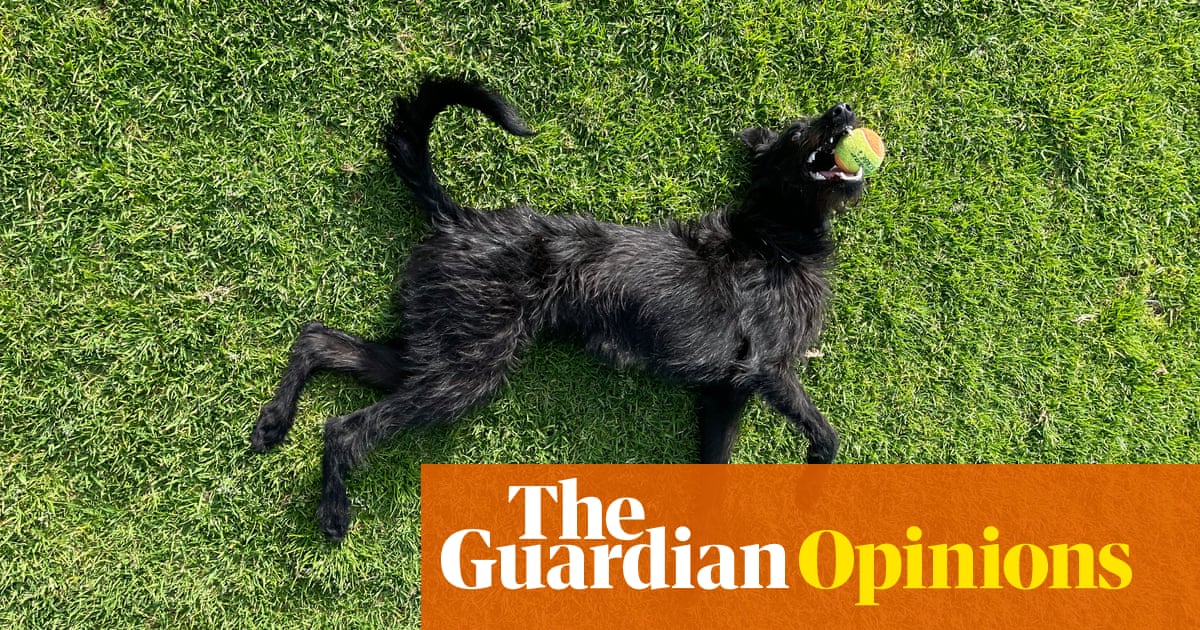
When our dog died last year, amid the grief was – I admit – a sense of relief. Life was busy with two young kids and their commitments, to say nothing of work and the tedious routines of housekeeping. There would be no more standing around on the local rugby field, endlessly kicking tennis balls. I had lost a dog but gained an extra hour a day.
Three months later, we brought home another puppy. This was clearly a terrible mistake. We weren’t ready. My wife couldn’t look at the new dog without crying (I worried what the dog made of this). Worst of all, I had sentenced myself to another decade in the dog park.
As it turns out, that lost hour is generally the best in any day. Yes, there are doubtless mental health benefits to being out surrounded by chlorophyll and fresh oxygen. Yes, it’s pretty spectacular to watch the sunset over the Indian Ocean every evening. But the real joy of spending a chunk of my day in the dog park is getting to spend time with people with whom I have seemingly nothing in common.
In these days of algorithmic overlords, getting to meet people whose politics, economics, experiences or general demographics don’t neatly match your own feels as liberating as it is rare. But when you’re watching your dogs run and wrestle, there is little else to do but talk to strangers. (Something I otherwise try to avoid.) And when your only point of connection with strangers has four feet, those conversations tend to swerve all around the Overton window. Forget Twitter, the dog park is the real town square.
I had long suspected there were people – real, living people – outside my echo chambers (and the inner-Melbourne enclave I had recently abandoned for Perth suburbia), but I hadn’t realised how much I would come to like them.
In her 2019 book Don’t Label Me, the Ugandan Canadian writer Irshad Manji describes how we have been trained to label each other – particularly those people we disagree with. The first time someone in the park raised a talking point I’d only previously heard from a Sky News presenter I had a moment’s panic – could we still be friends? Was I obliged to correct her? Mostly, I felt worried for her. Any moment now, the Twitter mob would arrive armed with flaming opinions and she would be forever banished to that lesser dog park two suburbs north.
Of course, that didn’t happen. What did happen was someone else in the group offered a different viewpoint, which was welcomed and interrogated, and we ended up – via several digressions – in a shared understanding. I watched, dumbstruck. It was a textbook performance of JS Mills’s free speech model, the players armed only with poo bags and damp shoes. Some were willing to be proved wrong, some were able to buttress their positions, and some agreed that truth usually falls somewhere between the extremes.
This was the first of many open conversations. The sort I suspect most people crave. When I ran A Night of Better Conversation events for The School of Life, the punters who came along all said more or less the same thing – they found it hard to talk freely about the things that mattered, for fear of offending or confusing the people they cared about. It was easier to be open with strangers, particularly if you knew they were doing their best to withhold judgment. To talk freely, you need to stop worrying that you may say the wrong thing.
Most communities are communities of shared interest. Schools. Workplaces. Churches. These are communities that define us, that cement us as being a particular type of person. What the dog park offers is a wonderful stripping of identities. Your politics, career or background no longer matter. Even your name isn’t essential. In the dog park you are known only – sometimes shamefully – by your dog. There are shortcomings to this model of community. I’m aware there are some (probably) very nice people at our park that I’m never going to get along with, simply because our dogs don’t like each other.
Stripped of our labels, most people turn out to be easy to like. Manji argues this might be the best way out of our polarised age – not to look for purities in others, but pluralities. We are all more than one thing. What I’ve noticed in our park is that, when there are no obvious commonalities (except a love of our canines), the things we all share become easier to see. A common humanity that is often lost between the poles.
During a recent health crisis, the dog park became a vital support network. People we only knew from a few hundred square metres of grass showed us extraordinary compassion, care and generosity. I’ve seen that same compassion extended to others in difficulty – be it romantic trials, economic peril or, more commonly, a dog that won’t stop barking.
To me, the dog park offers an ideal of what our communities should be like. Diverse, caring and open (with just the right amount of gossip). Maybe the strongest communities are the ones where our identities matter the least. Where it isn’t our politics but how we treat each other – and especially our dogs – that defines us.
-
Myke Bartlett is a writer, critic and owner of the fastest dog in the park
Forget Twitter, my local dog park is the real town square - The Guardian
Read More
No comments:
Post a Comment